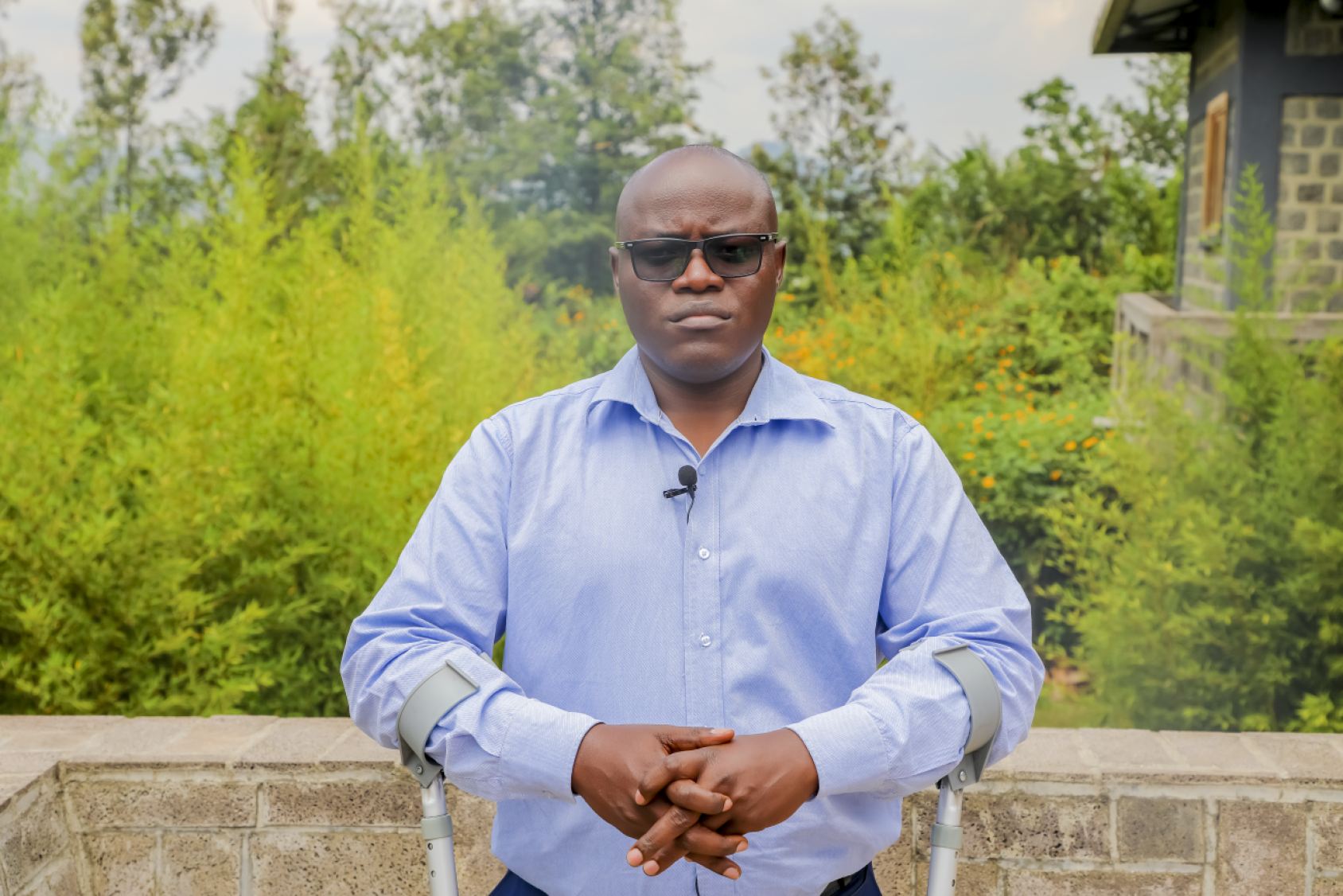For UN teams, disability inclusion is imperative not optional
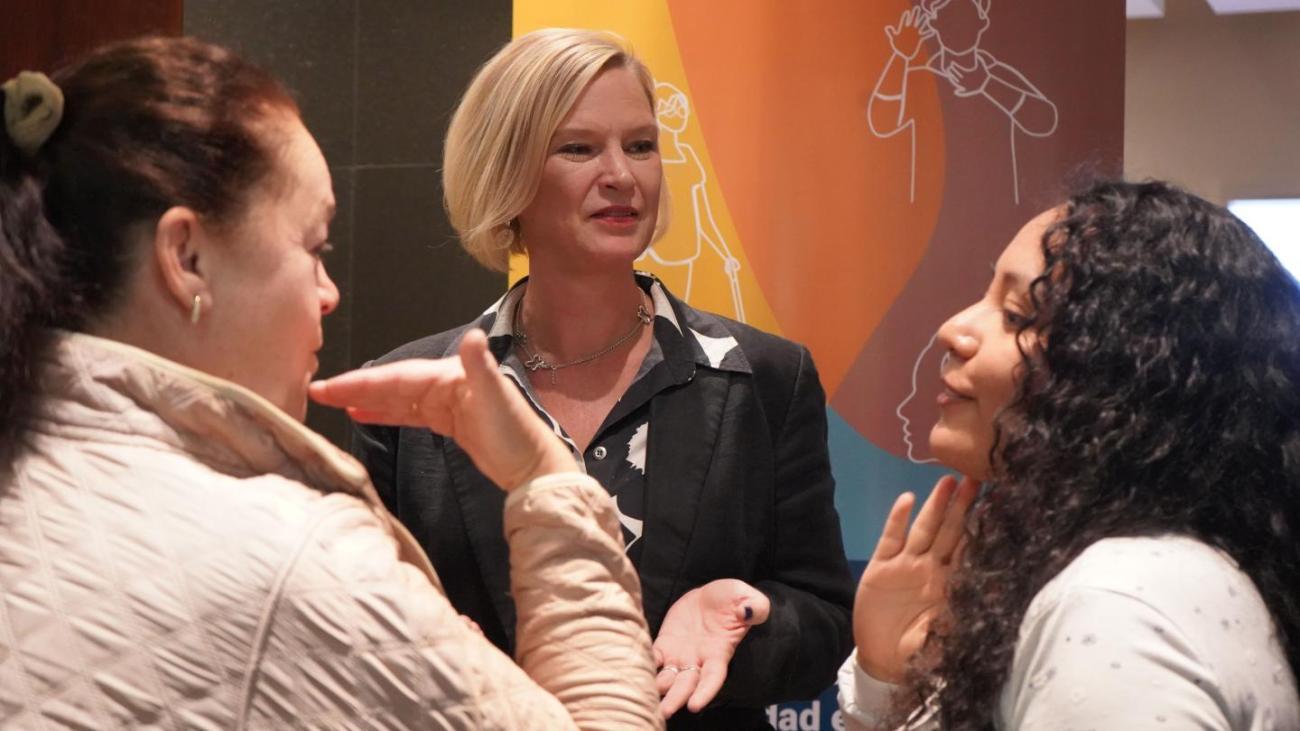
UN teams around the world are working to ensure that people with disabilities are not just heard but empowered – a constant reminder that true progress means inclusion for all. The International Day of Persons with Disabilities on 3 December serves as a global call to action to further this important work.
Driving this mission is the UN Resident Coordinator, bringing governments, civil society, and the private sector to the table to advance disability inclusion and leadership. From pushing for accessible education and healthcare to creating pathways for employment and social protection, UN teams work to embed disability rights into national policies and programmes. Their efforts turn global commitments, like the Convention on the Rights of Persons with Disabilities and the Sustainable Development Goals (SDGs), into real, measurable change.
On this International Day, here are snapshots from around the world of collective UN efforts to challenge barriers and demand bold actions to build societies where every person—regardless of ability—can thrive. Inclusion is not optional; it is the foundation of sustainable development.
India: Inclusion in UN workspaces
For the UN in India, disability inclusion starts at home. Setting the tone, the UN in India signed a joint Non-Discrimination Statement on Employment of Persons with Disabilities. Through this commitment, 26 UN agencies have pledged to promote inclusivity, protect human rights, and foster an equitable work environment for all persons with disabilities. The UN Resident Coordinator, in collaboration with the International Labour Organization (ILO), has been sensitizing UN staff members in an effort to make the UN system and its workspaces truly accessible. Shining a light on the entry barriers faced by persons with disabilities, the trainings helped set the agenda at all levels from the heads of agencies to human resources officers and more.
Iraq: Platforms for leadership and empowerment
Earlier this year, the first National Forum for Empowering People with Disabilities was held in Baghdad, bringing together diverse voices from government, private sector, civil society, academia, and local communities. The Forum provided a platform for discussing the challenges faced by persons with disabilities and explored ways to invest in their vocational rehabilitation and economic empowerment. With the patronage of the Prime Minister, the Forum was convened by the United Nations Development Programme (UNDP), in collaboration with the Ministry of Labour and Social Affairs and the United States Agency for International Development (USAID). With a focus on relevant issues such as the leadership of youth with disabilities, the role of digital technology in education and training, integrating individuals with disabilities into the labor market, and the promotion of social responsibility, the Forum was a space to exchange experiences and inspiration.
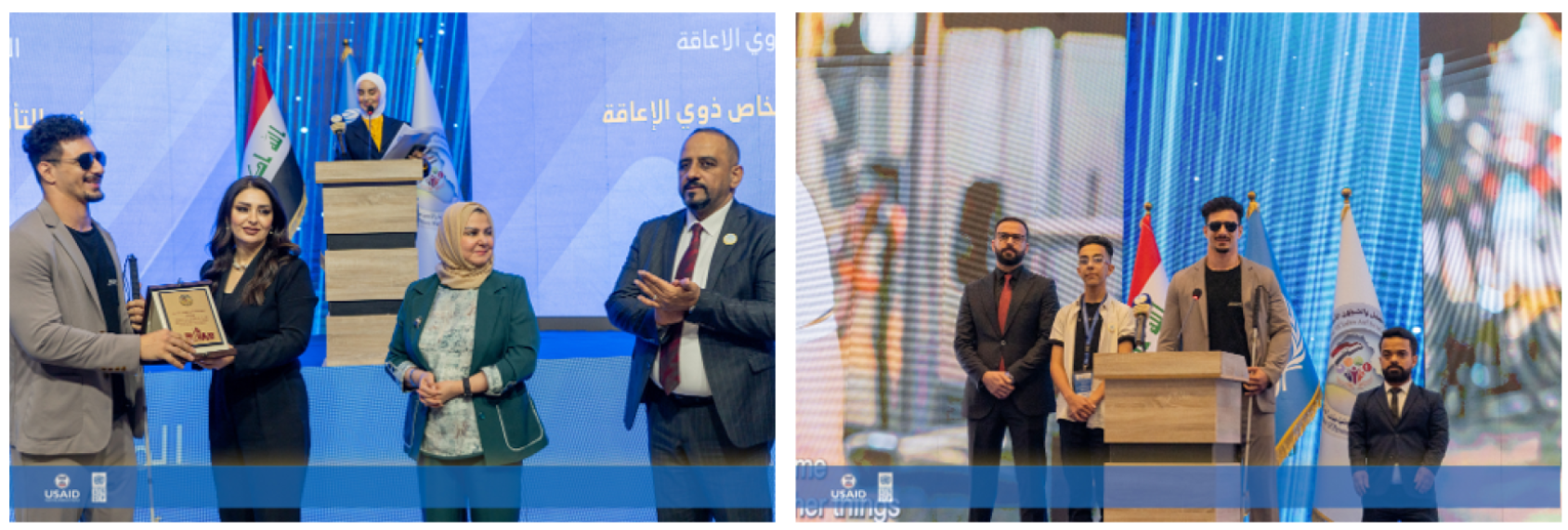
Kazakhstan: Awareness and action
In order to center the value of the SDGs in public discourse, the UN in Kazakhstan has been engaging with civil society, media and citizens to raise awareness and capture stories of ordinary lives shaped by a vision for a better future. This builds on the policy support that the UN offered to Kazakh authorities last year to adopt a new social code, one that aims to protect the socio-economic rights of vulnerable groups and ensures that public services reach every citizen. Earlier this year, the UN in Kazakhstan brought together partners and the wider public at a photo exhibition called “UN & Me”- focusing on 30 stories of resilience and everyday citizens. Several of these heroes have engaged closely with various UN entities such as Senator Lyazzat Kaltayeva, who works to defend the rights of people with disabilities and Assem Tazhiyeva, an entrepreneur revolutionizing social impact through her startup Ozim Platform that provides essential information for parents, including those with children with disabilities. The campaign marks the UN’s support to Kazakhstan for over three decades through various initiatives and projects that focus on social development and improving the quality of life for all citizens. Further, the UN in Kazakhstan has supported the establishment of the first inclusive theatre in Central Asia- “Qanattylar”. The purpose of the theatre is to develop the talent of people with disabilities, promote their creative potential on stage and realize new opportunities for expression and employment.
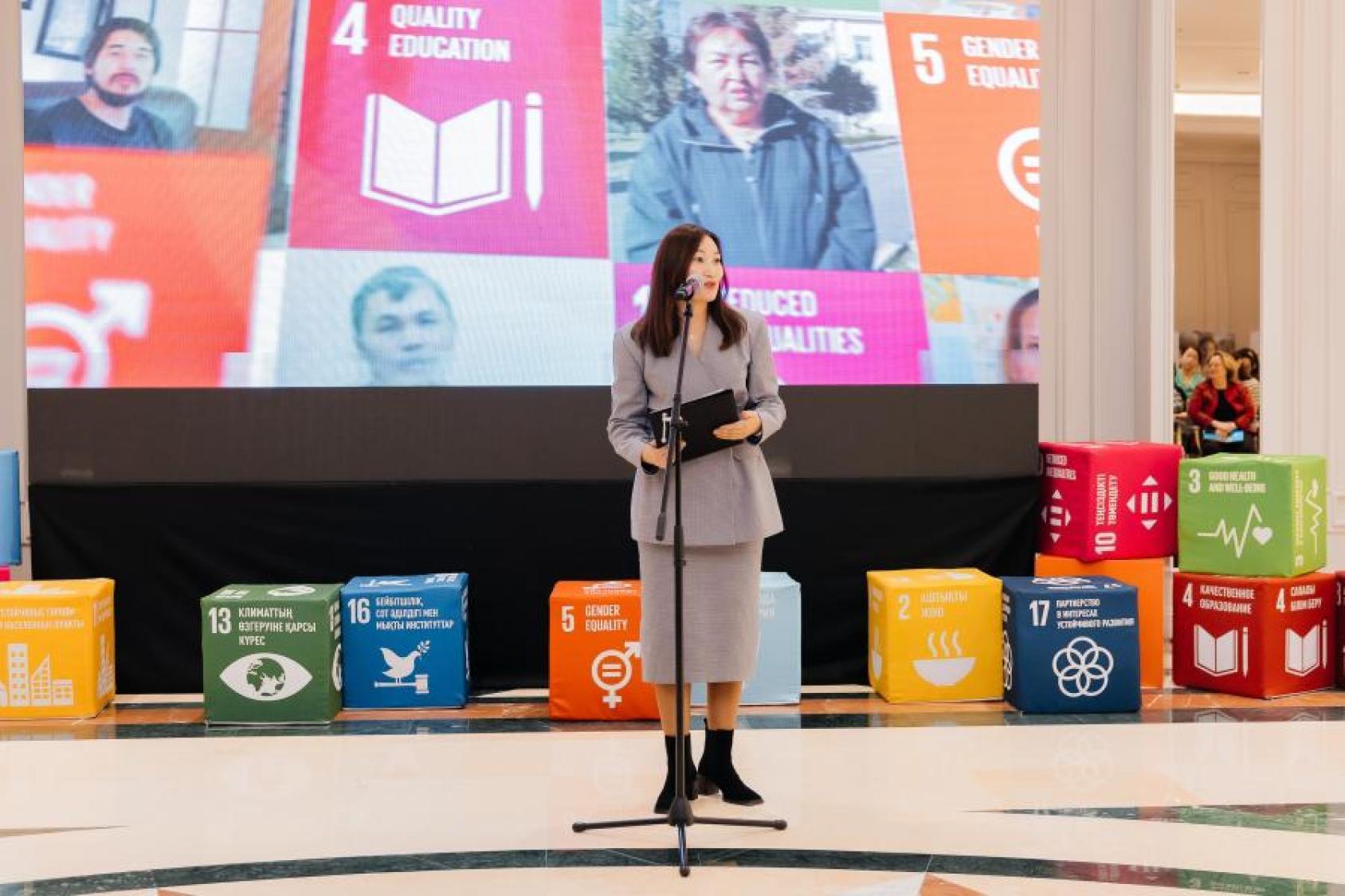
Nepal: Disability rights in subnational governance
Inclusive and effective subnational governance is crucial for disability inclusion. This can help people access vital services, realize their rights and participate meaningfully in society. In Nepal’s Sudurpaschim province, UN Women with support from the Government of Finland and the UN Partnership on the Rights of Persons with Disabilities, has been working to ensure that subnational governance structures and protocols are gender-responsive and inclusive. This is being done by engaging with civil society partners and disability rights activists who can help inform and shape how policy and budget decisions are made at the local level. One such community leader is Sharada Bista, the founder of the Disability Rights Promotion Forum, who hails from the same province. Working with authorities and UN partners to help counter discrimination and injustices faced by women with disabilities, Ms. Bista is a shining beacon for all. Hear from her about what families, education systems and governance can do to empower persons with disabilities in Nepal.
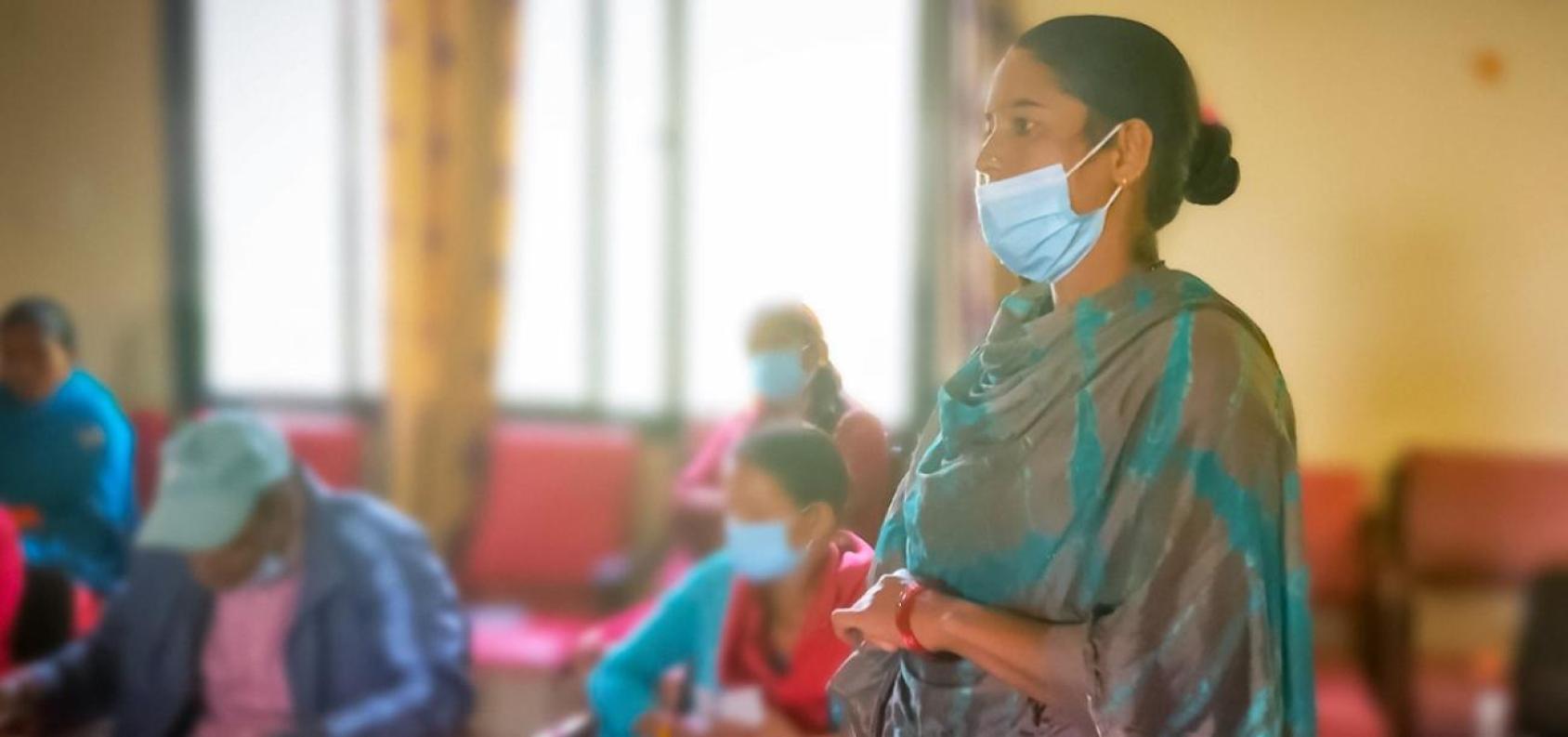
Ecuador: Spotlighting women with disabilities
Over 1 million people living in Ecuador have some form of disability and experience permanent difficulties walking, seeing, remembering, hearing and/or speaking. More than half of them are women. Even as the country has made significant strides enshrining the rights of persons with disabilities in its constitution, there are still great challenges to achieve equality, from poverty to stereotyping, that prevent them from accessing health services, education, decent work or social protection. A joint UN project funded by the UN Partnership on the Rights of Persons with Disabilities, is helping train young activists with disabilities from across the country. Capacity building, organized a few months ago by the UN Development Programme and the UN Population Fund, has provided advocacy tools and created national networks of support among 38 women with disabilities. The overall programme brings together four UN agencies and development partners to affect social change and foster more inclusive and equitable environments for all people.
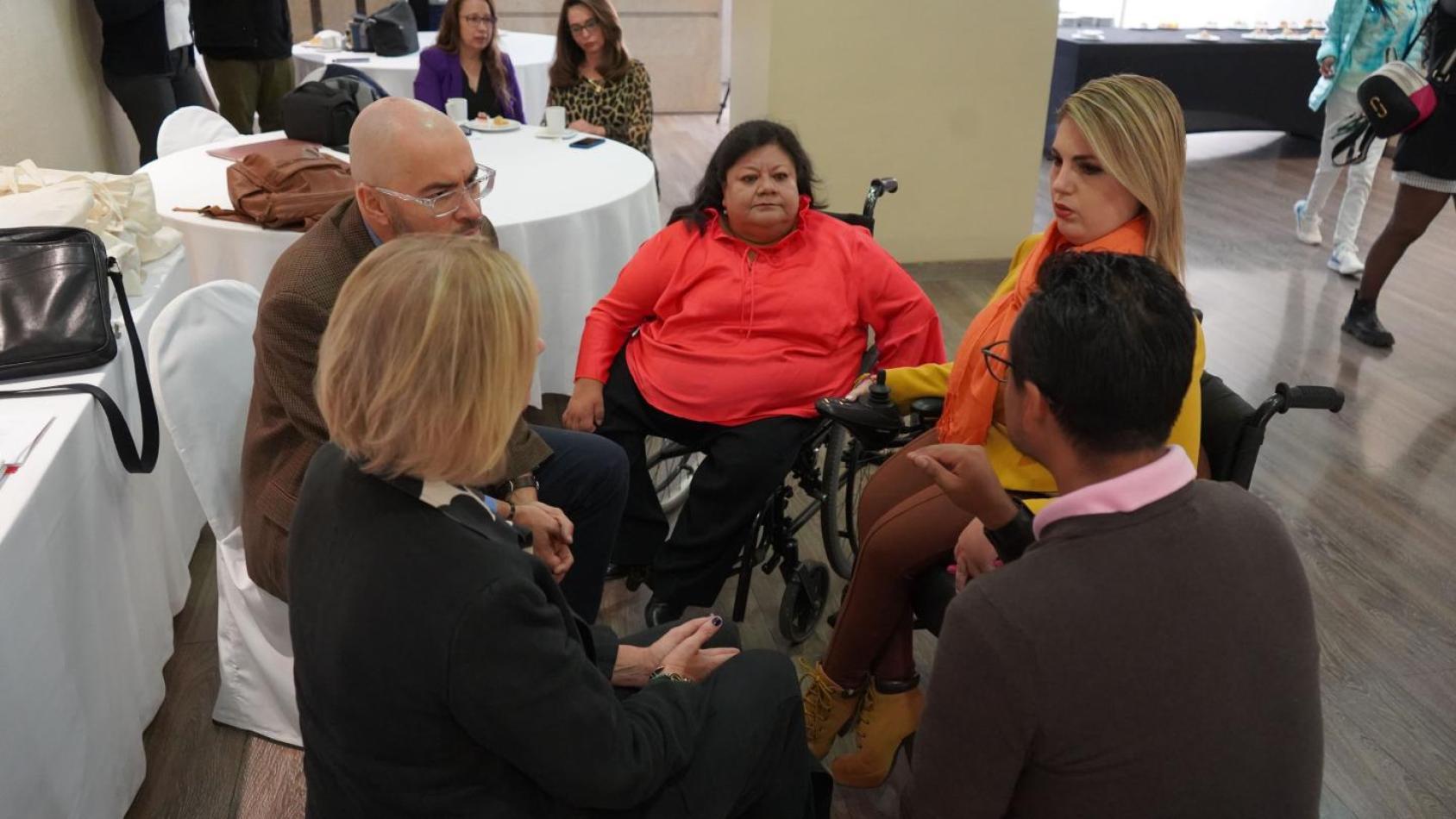
Rwanda: Cultivating leadership within
In Rwanda, the UN’s very own Oswald Tuyizere is a familiar face and inspiration to all in the organization and beyond. Oswald's journey began shortly after birth when polio left his legs paralyzed. Learning to cope with limited mobility early on, it was amply clear that lack of access to resources would be Oswald’s biggest obstacle. With no means of affording a wheelchair, Oswald and his family resorted to improvising makeshift solutions to help him sit and move. Since then, Oswald has been a change-maker, pushing his university to invest in accessible infrastructure and inclusive policies for students with mobility impairments. Today, Oswald extends his advocacy to a global stage, working passionately as a Child Protection Specialist with the United Nations Children’s Fund (UNICEF) to champion the rights of children and persons with disabilities. His testimony and his activism have been crucial in fortifying a collective push for disability inclusion within the UN, development partners, government, civil society and more. A recent dialogue helped partners recommit to addressing broader issues of accessibility and inclusion, combatting stigma and enforcing laws and regulations that protect the rights of persons with disabilities.
